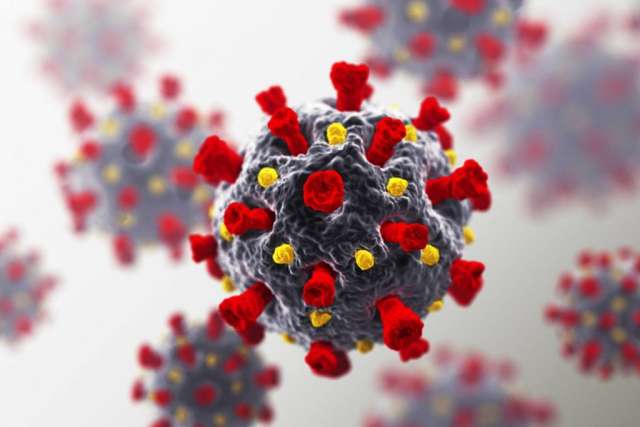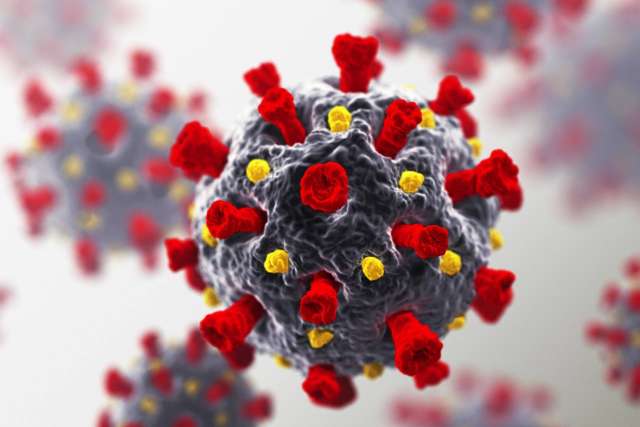Headaches. Fatigue. Inability to concentrate. Sleep disruptions. Loss of taste and smell. Memory problems. Muscle weakness. Even after recovering from a bout of COVID-19 that did not require hospitalization, some patients experience continuing symptoms.
Getting appropriate treatment may feel like a long diagnostic journey, but there is hope, and UCLA Health neurologist Dr. Elyse Singer encourages patients not to give up. “Don’t feel like you’re alone in this,” she says.
Many non-COVID-19 neurological and psychological conditions have symptoms similar to those related to COVID-19, Dr Singer says, but their causes and treatments are quite different. Seeing a neurologist can help guide the way.
PTSD
“There’s a tremendous amount of symptoms from post-traumatic stress disorder (PTSD) that have to be separated out from a neurological problem,” Dr Singer says. Many COVID-19 survivors who have been through a traumatic near-death experience or have endured invasive treatments such as intubation and ventilation in an ICU can develop PTSD.
However, the condition is not limited to those who have been through life-threatening disease. Many COVID-19 patients had to “ride out” their illness while isolated at home; the associated combination of fear, pain and loneliness can also lead to PTSD. And front line workers, who face death and disease day in and day out, also can experience PTSD amid feelings of helplessness.
Symptoms of PTSD include nightmares; anxiety; memory problems; loss of interest; difficulty concentrating, focusing or carrying out complex tasks; and trouble sleeping. Because these symptoms can arise from different causes, however, it’s important to see a specialist.
“PTSD should be aggressively treated with medication and psychotherapy,” says Dr. Singer. “It’s a real disease and it changes the brain.” A neurologist can perform an assessment to determine whether the patient’s symptoms stem primarily from a neurological or psychiatric cause and then start the appropriate treatment.

Delirium
Some people may develop neuropsychiatric symptoms even if they were never hospitalized for COVID-19. A number of patients experience delirium, possibly resulting from low oxygen, reduced blood flow to the brain, elevated levels of inflammation, or possibly the virus attacking the nervous system. Dr. Singer recalls interviewing a patient who was not considered sick enough to be hospitalized, but suffered for three days at home with fever and disturbing delusions and hallucinations. Her family placed food under her door but remained outside her room because she was considered infectious.
“For three days she was hallucinating that people were in the room, that her pool was being filled in with grass and dirt,” Dr Singer says. “What would that do to a person’s psyche?”
The delirium can be dangerous on its own, causing patients to injure themselves in the throes of a hallucination. But Dr. Singer points out that recovering from the terrifying experience also can take a toll, causing PTSD or ongoing anxiety.
Stroke
COVID-19 originally was considered a respiratory disease, but more recent studies have shown that it has a tremendous effect on the cells lining the blood vessels and the cardiovascular system. Clots in large blood vessels have caused major strokes among young people with no previous risk factors – one of the virus’ more alarming manifestations. Some people, however, may experience multiple small, less noticeable strokes. Though these strokes may not be immediately life threatening, they can cause cognitive and memory problems.
“People may have had tiny strokes while in the hospital that may not have been caught by physicians,” Dr Singer says. “How are you going to notice that in the middle of intubating someone?”
Minor strokes can cause confusion, language disorders, dizziness and balance issues, or weakness on one side of the body. Seek medical treatment immediately if you think you may be having a stroke.
Sleep disorders
Many things can interfere with a good night’s sleep, but ongoing sleep disruptions could mean it’s time to see a doctor.
After going through severe respiratory distress, some COVID-19 patients may develop sleep apnea, a dangerous condition that causes you to stop breathing during sleep. In addition to boosting the risk of heart disease and stroke, sleep apnea can cause neurocognitive symptoms, such as executive function deficits, decreased attention and memory problems.
Patients diagnosed with severe sleep apnea can be prescribed a device called a continuous positive airway pressure, or CPAP, machine. Less serious cases can be managed with an oral device that repositions the airway. These devices prevent the airway from collapsing and increase air exchange.
Cognitive deficits
Cytokine storm, a massive inflammatory reaction to the virus, has been the culprit in many COVID-19 deaths. However, those who survive cytokine storm may have lingering immune complications, and some of those may affect the brain and nervous system.
Dr. Singer points out that laboratory studies have shown that cytokine storm and other forms of severe inflammation that may occur during a serious infection can cause learning and memory problems in mice. “Having too much inflammation in the brain can impair your thinking,” she says. “In some cases this goes away and sometimes it doesn’t.”
There is also a concern that in older people, COVID-19 may exacerbate age-related neurodegenerative disorders, but not much is known yet about how often this occurs or how to slow the cognitive decline. “These are important scientific questions to unwrap,” Dr. Singer says.
Much remains unknown
Unfortunately, many of the long-term symptoms associated with COVID-19 are still being studied, and no tried-and-true treatments are available. Because the symptoms may stem from problems in various body systems, they may require attention from multiple specialists. Autoimmune disorders, cardiovascular disorders and neurological disorders can all intertwine to cause debilitating long-term symptoms with no obvious cause.
“People ask, why can’t you give me an antiviral?” says Dr. Singer. “At a certain point, that doesn’t work, because that’s not the problem anymore. The virus is gone, but your body is still reacting as if it’s there.”
Caroline Seydel is the author of this article.




